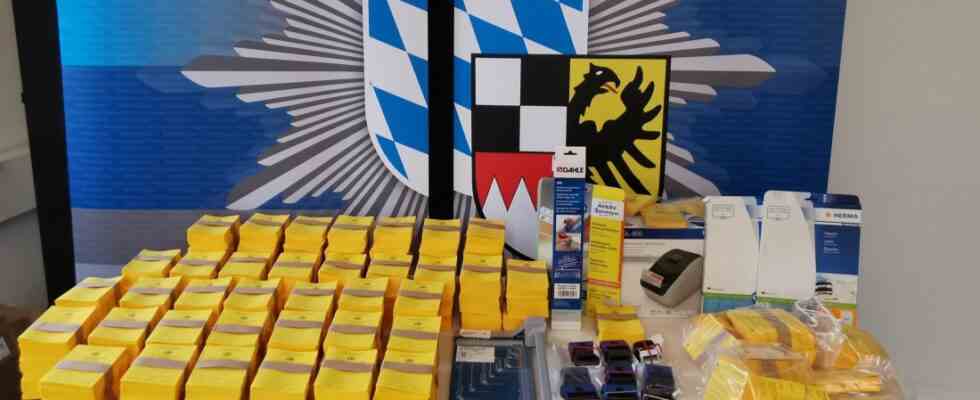Drug trafficking, forced prostitution, smugglers or gang fraud – the Greens in the state parliament accuse the state government of strategic failures in organized crime (OC). “The Söder government must no longer look on and must finally declare war on organized crime in Bavaria,” says the parliamentary group leader and domestic policy spokeswoman Katharina Schulze. She calls for better human and material resources for the judiciary and criminal police, especially with digital expertise, as well as “more functional structures”. Organized crime acts “by division of labour, transnationally and digitally” – the state must do the same. When asked by the SZ, the Ministry of Justice rejected the allegations: “Bavaria is well positioned” and is fighting the OC “intensively and successfully”.
Schulze bases her thesis of negligent action on answers from the interior and justice ministries, which she has recently received in response to a bundle of written inquiries related to the OC. These showed that the findings, for example on the development of the Italian mafia or on the criminal activities of groups in the pandemic, are poor. Broader situation reports are needed for Bavaria, which also “illuminate the dark field”. In Schulze’s eyes, the data situation is “grossly negligent” in the corona context. Her assessment of the actually tight-lipped answers from the ministries is: Although the trade in fake vaccination cards is booming and the judicial authorities have registered thousands of cases of fraud in emergency aid, the government “apparently has no idea in the second year of the pandemic what role organized crime is playing”. When it comes to drug trafficking, the government even admits that there has been a significant increase in offers on the dark web as a result of the lockdowns, but said that it is not being recorded any further.
75 cases against 782 suspects
Crime is considered to be organized when several participants commit crimes in a commercial or business-like structure over a long period of time and “determined by the quest for profit and power”. There is a nationwide definition for this, according to this grid, 75 proceedings against 782 suspects from 51 countries were conducted in Bavaria in 2020. If certain characteristics are not met, the investigations do not run as an OK thing. The general public prosecutor’s office and the State Criminal Police Office publish a rather brief situation report every year, most recently for 2020. Its authors make it clear that they are not speculating: “No valid assessments of the type and scope of a possible dark field can be derived from basic statistical data”.
“The judiciary has increased its clout,” said Minister of Justice Georg Eisenreich (CSU), “closely networked with colleagues from neighboring countries, around 50 specialized public prosecutors are now searching in Bavarian border regions”. These OC prosecutors are investigating “at Bavaria’s potential gateways to international crime, from Memmingen Airport via the Alpine region to the Waidhaus border crossing in the Upper Palatinate”. The ministry rejects a special public prosecutor’s office in addition to and specifically for the confiscation of assets at OK, as recommended by Schulze. The political demand for “cure-alls” for all crime phenomena is “unimaginative and inappropriate”. At the Munich Public Prosecutor’s Office there is a central coordination office for asset recovery to support courts and public prosecutors in “consistently collecting money from criminal gangs”. This has proven itself. For the police side, Interior Minister Joachim Herrmann (CSU) referred to a working “recipe for success” in the last situation report: specialized OC units at all police headquarters and a separate department in the LKA.
In 2020, the second highest number of OK procedures in Germany was conducted in Bavaria. This often includes economic crimes such as investment or call center fraud. Or ATMs blown up, a new type of bank robbery, in which groups of perpetrators from the Netherlands with Moroccan roots were identified. The OC also includes the criminal part of the rocker scene and rocker-like groups that act as gangs independent of motorcycles. The situation picture captures the dominant nationality in OC groups. Germany and Turkey are mentioned most frequently, but southern, eastern and south-eastern Europe are also conspicuous. “Clan crime” involving families of Arabic origin, which is the focus of the media in other federal states, has not yet been shown to be a more relevant phenomenon in Bavaria.

